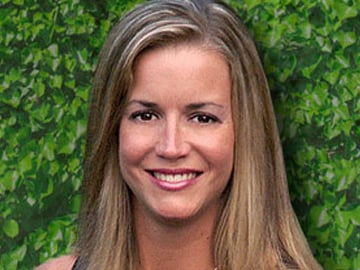
Battle ready: Five steps to build recession-proof entrepreneurs
How do entrepreneurs bounce back from uncertainty and decline?
Entrepreneurship has taken a beating in the Great Recession that has lingered since 2008. Funding sources have dried up and projects have been put on hold as market leaders hunker down for the long haul. Yet the world needs innovators ready to create jobs, manage risks and drive growth.
How do entrepreneurs bounce back from uncertainty and decline, and start businesses ventures in challenging times? Our research, based on 500 survey responses in the United States and abroad, reveals two major factors.
The first is entrepreneurial self-efficacy, or belief in one’s ability to do what it takes to be an entrepreneur. The second is resilience, or the ability to persevere after hardship or failure.
Both traits can be learned and practiced, which is good news for would-be entrepreneurs. Here are five steps that individuals can take:
1. Get educated
Self-efficacy in entrepreneurship starts with knowledge of business fundamentals. Solid accounting and finance tools, combined with a foundation in management and leadership skills, can make the difference between dreaming and taking action.
Studying a particular industry also helps. While working as a finance professional in New York, Christine Marchuska took advantage of sewing and fashion classes in the city’s garment district.
When she lost her job in the Great Recession, Marchuska applied her new skills to the launch of an ecofriendly fashion line called c. marchuska. The company combines bamboo fabrics sourced domestically with urban design and modest prices.
Education opportunities range from short seminars, workshops and certificate courses to full-scale degree programs. Each lesson learned opens new doors.
2. Find a mentor
The idea of entrepreneurship appealed to former bank executive Scott Walker, but he did not know how to start when the economy tanked in 1990. Instead of living high with a six-figure salary, Walker found himself unemployed and broke.
He considered his options and decided to find a mentor who could show him how to build a company from the ground up. A prospect came when serial entrepreneur William Conley Jr. announced plans for an Internet infrastructure company. Conley offered no salary, benefits or guarantees, but Walker signed up as the first employee.
The friends worked together during the next few years until 1999, when Walker took a chance on a bill payment company later renamed BillMatrix. Under Walker’s leadership, BillMatrix swelled from four to 300 employees.
Walker sold the company to Fiserv in 2005 for $350 million, and since then has moved on to other ventures. His name now appears on the Walker Center for Global Entrepreneurship at Thunderbird School of Global Management, where my professorship is based.
Would-be entrepreneurs can boost their entrepreneurial self-efficacy and resilience when they model others who have successfully steered businesses through difficult times.
3. Read stories
Loan Ma did not have access to business mentors or even the Internet while growing up on a family farm in rural Vietnam. Instead she searched out entrepreneurship magazines and books, such as “Rich Dad, Poor Dad,” which fueled dreams of starting her own company.
Ma worked her way through college, studied English in her spare time, and found a job on the Ho Chi Minh City Stock Exchange. Eventually she earned a scholarship to Thunderbird, where she met two partners who helped her launched Auxesia Holdings in 2010.
The consulting firm, which helps private investors enter the Vietnam market, has gained early success partly because of the founders’ willingness to seek education and mentorship. (In addition to earning their MBAs from Thunderbird, the partners keep in touch with mentors in New York, London and Zurich.)
The original motivation to start the company, however, came from the magazines and books Ma read in her youth. Stories of overcoming turmoil and adversity can help creative individuals find inspiration, opportunities and solutions.
4. Build a network
Inspiration during challenging times also comes from connections made at professional, school and community events.
One key is to find people with skills different from yours so you have something to offer each other. This is the formula that worked for Ohad Nezer and Chris Nicolaysen, two students who met at Texas A&M during the Great Recession.
Nezer had business skills but no technical background, while Nicolaysen had years of experience in the high-technology industry. Together the partners developed a plan for seatkarma.com, a live entertainment search engine that helps consumers find tickets at affordable prices.
Nezer and Nicolaysen met on campus, which is one benefit of college enrollment. Aspiring entrepreneurs also can join local chamber of commerce groups and industry-related organizations.
Simply meeting new people, swapping stories and having conversations at networking events often sparks novel ideas and new partnerships.
5. Take action
The final step is to practice positive thinking and purposeful entrepreneurial activity. Successful entrepreneurs develop self-efficacy and resilience through real-world application of theory and knowledge.
The men and women mentioned in this article all took action in the midst of economic turmoil. They took risks, stayed optimistic and created jobs during times when other companies were laying off workers and closing their doors.
Each story is different, but the personal characteristics that drive entrepreneurial intentions remain the same. Recession-proof entrepreneurs do what it takes to build self-efficacy and resilience.
Amanda Bullough, Ph.D., is assistant professor of global entrepreneurship and leadership at Thunderbird School of Global Management in Glendale, Arizona. She is academic director of the Goldman Sachs 10,000 Women Entrepreneurship Program in Afghanistan.
[This article has been reproduced with permission from Knowledge Network, the online thought leadership platform for Thunderbird School of Global Management https://thunderbird.asu.edu/knowledge-network/]





